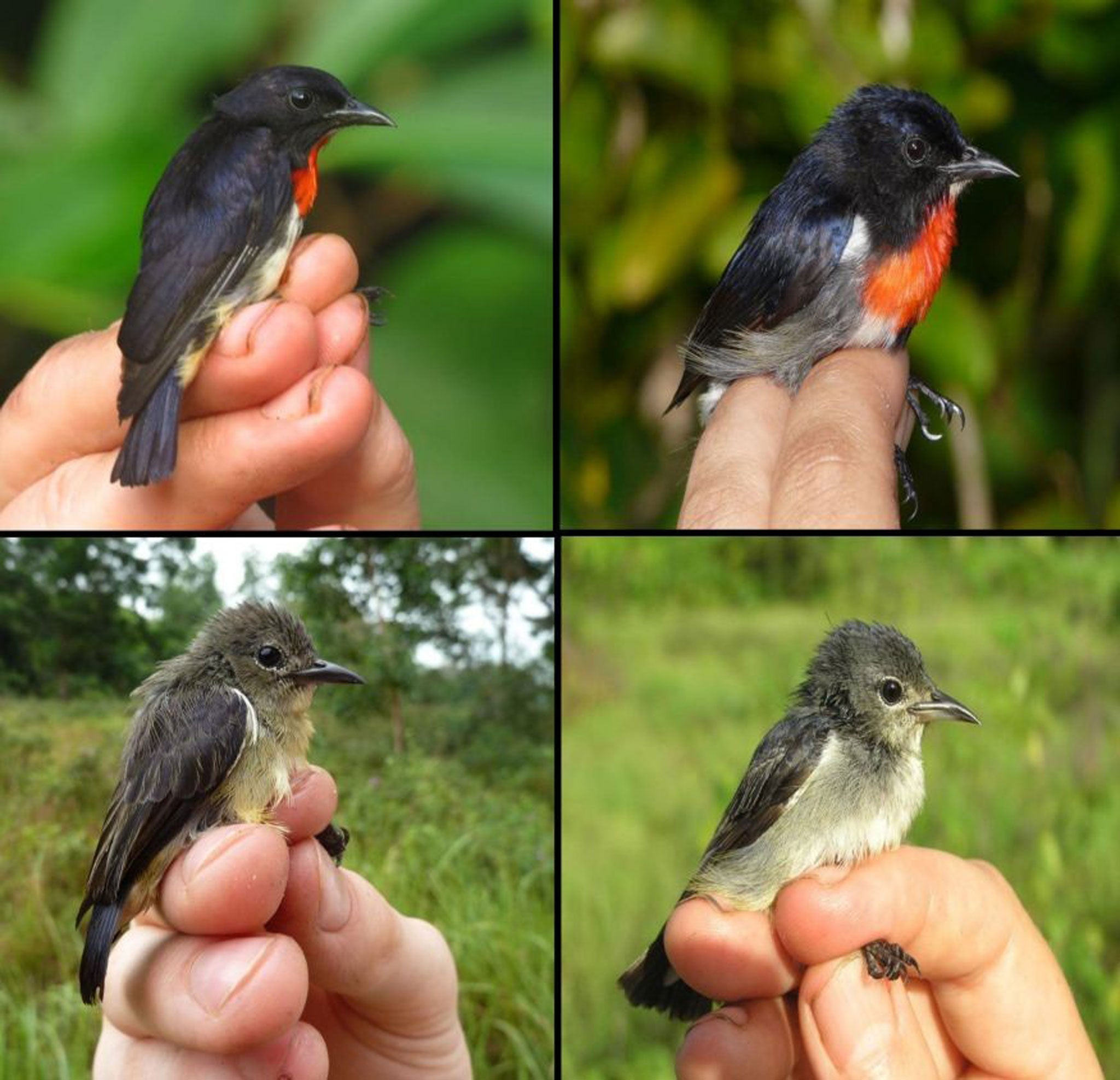Scientists warn newly discovered Wakatobi Flowerpecker bird could be threatened by rapid human development
Scientists fear birds yet to be discovered are in danger of being wiped out

Zoologists have warned that species of bird newly discovered on a small but biologically diverse Indonesian island could be threatened by the pace of development in the region.
The team identified the bird following numerous expeditions to the Wakatobi islands in south-east Sulawesi, and have called it the Wakatobi Flowerpecker or Dicaeum kuehni.
There are many different varieties of the flowerpecker across the tropics with the spectacled flowerpecker also a separate species and only identified in Borneo in 2009.
Having studied the bird, scientists noted that it is genetically distinct from and substantially larger than its closer relative, the grey sided flowerpecker. The birds do not interbreed, or cross the 27km stretch of sea which separates their habitats.
Sean Kelly, a PhD student at Trinity College Dublin and lead author of the study published in the journal‘PLOS ONE’, has warned that the tiny, colourful bird could soon be wiped out, along with other creatures that have not yet been discovered.
“As humans are changing the natural environments of Sulawesi at an incredibly fast rate, the discovery and description of species in the region is of major importance,” he said.
“This study also highlights the need for integrative, multi-disciplinary research in the region.
"Without this we will likely fail to recognise and appreciate the true biodiversity of this remarkable region. Furthermore, we run the risk of losing evolutionarily distinct species before we can even discover or enjoy them."

Dr Nicola Marples, associate professor of zoology at Trinity and senior author on the paper, said the protection status of the Wakatobi islands must be reassessed following the discovery.
"While the islands sit within the Wakatobi Marine National Park, they currently receive no protection. The Wakatobi Islands are an incredibly exciting place to work and they serve as a unique living laboratory in which we can study evolution in action," she said.
Despite being home to a vast number of unique bird species, the Sulawesi region has remained poorly studied.
Scientists believe that the lack of research and genetic analyses on similar birds has meant that the number of species on the relatively under-explored islands has been significantly underestimated.
The islands became known as an extremely diverse region in scientific circles after it was explored by Alfred Russel Wallace, one of the forgotten fathers of modern science.
Russel wrote of the possibility of evolution by natural selection in the 1850s.
Some of his works were published alongside writings by his more famous contemporary Charles Darwin before the ground-breaking Origin Of The Species went to print.
Join our commenting forum
Join thought-provoking conversations, follow other Independent readers and see their replies
Comments
Bookmark popover
Removed from bookmarks